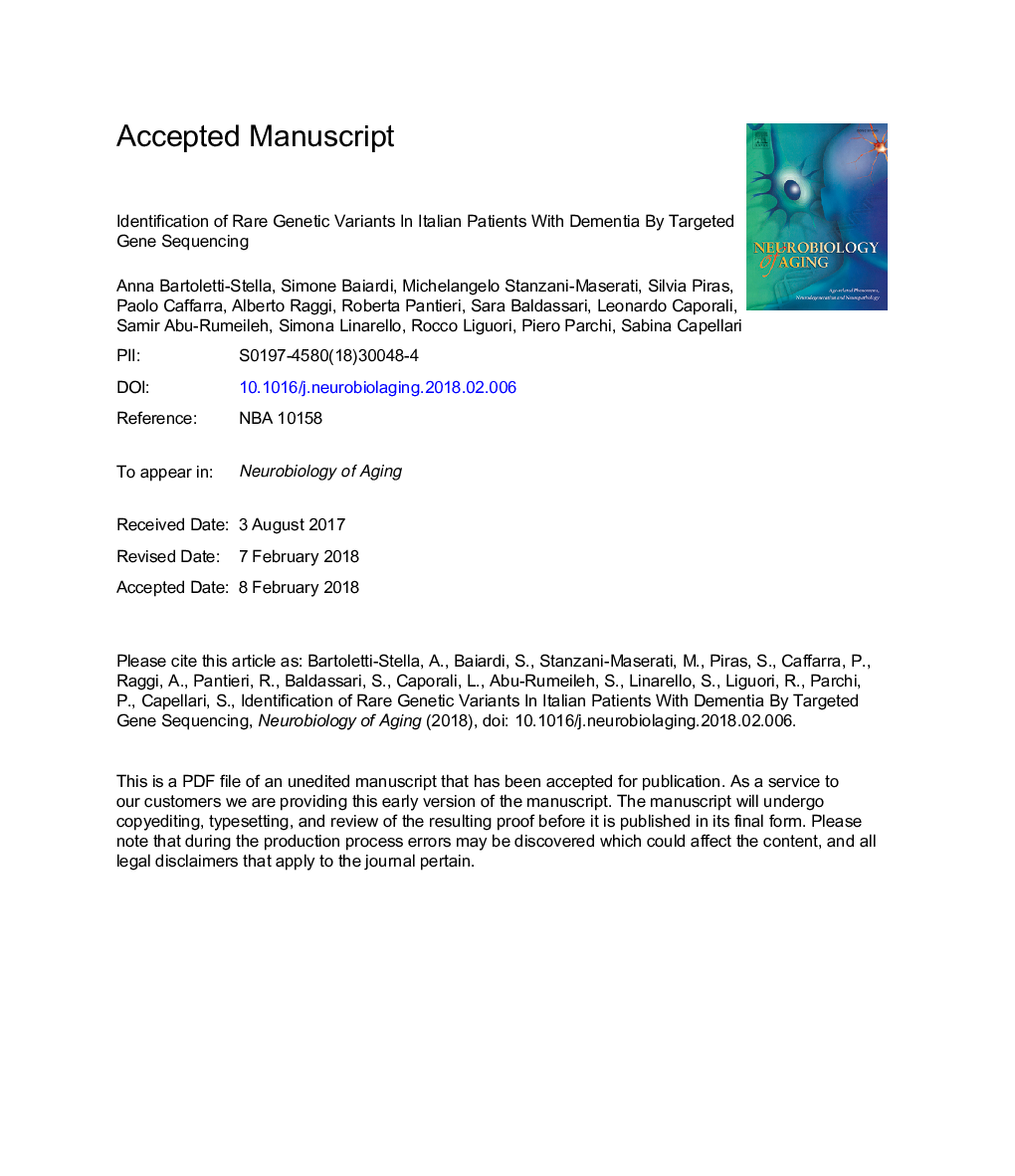| Article ID | Journal | Published Year | Pages | File Type |
|---|---|---|---|---|
| 6803024 | Neurobiology of Aging | 2018 | 33 Pages |
Abstract
Genetics is intricately involved in the etiology of neurodegenerative dementias. The incidence of monogenic dementia among all neurodegenerative forms is unknown due to the lack of systematic studies and of patient/clinician access to extensive diagnostic procedures. In this study, we conducted targeted sequencing in 246 clinically heterogeneous patients, mainly with early-onset and/or familial neurodegenerative dementia, using a custom-designed next-generation sequencing panel covering 27 genes known to harbor mutations that can cause different types of dementia, in addition to the detection of C9orf72 repeat expansions. Forty-nine patients (19.9%) carried known pathogenic or novel, likely pathogenic, variants, involving both common (presenilin 1, presenilin 2, C9orf72, and granulin) and rare (optineurin, serpin family I member 1 and protein kinase cyclic adenosine monophosphate (cAMP)-dependent type I regulatory subunit beta) dementia-associated genes. Our results support the use of an extended next-generation sequencing panels as a quick, accurate, and cost-effective method for diagnosis in clinical practice. This approach could have a significant impact on the proportion of tested patients, especially among those with an early disease onset.
Related Topics
Life Sciences
Biochemistry, Genetics and Molecular Biology
Ageing
Authors
Anna Bartoletti-Stella, Simone Baiardi, Michelangelo Stanzani-Maserati, Silvia Piras, Paolo Caffarra, Alberto Raggi, Roberta Pantieri, Sara Baldassari, Leonardo Caporali, Samir Abu-Rumeileh, Simona Linarello, Rocco Liguori, Piero Parchi,
